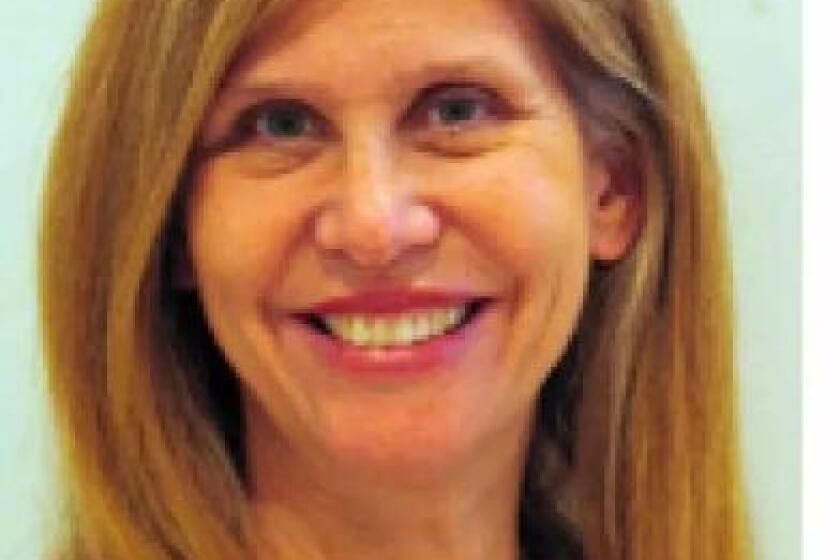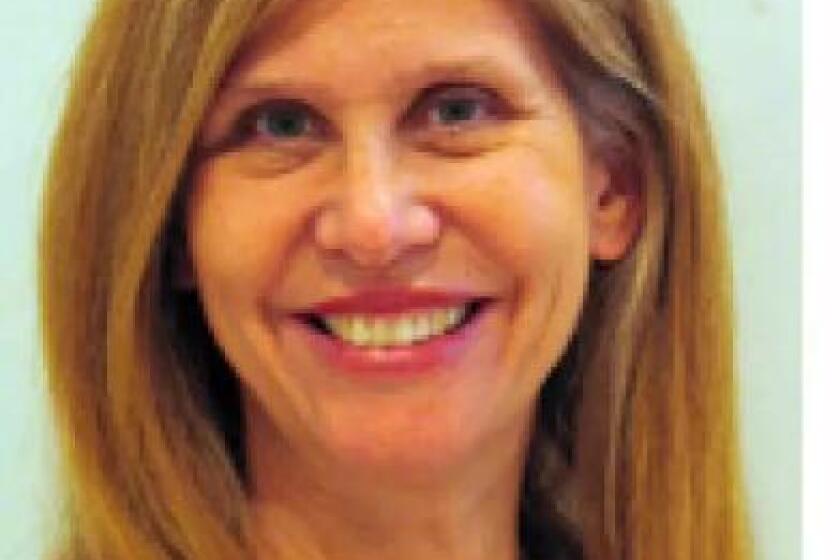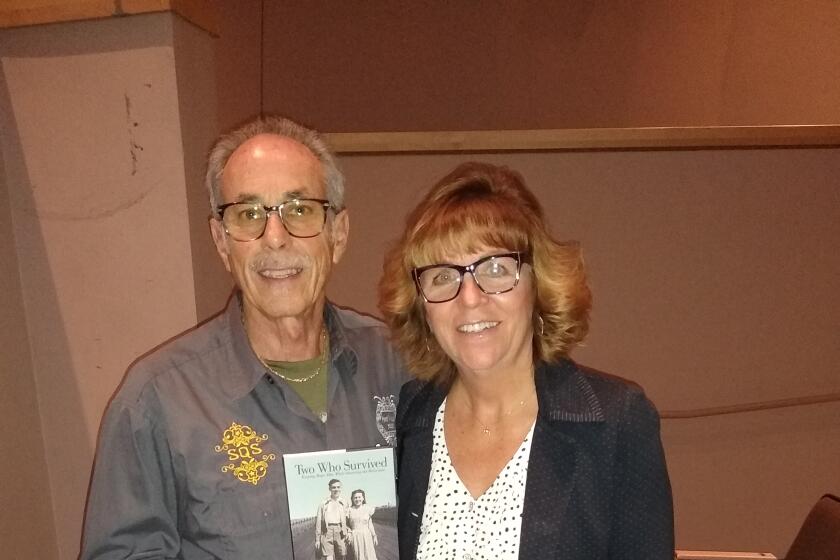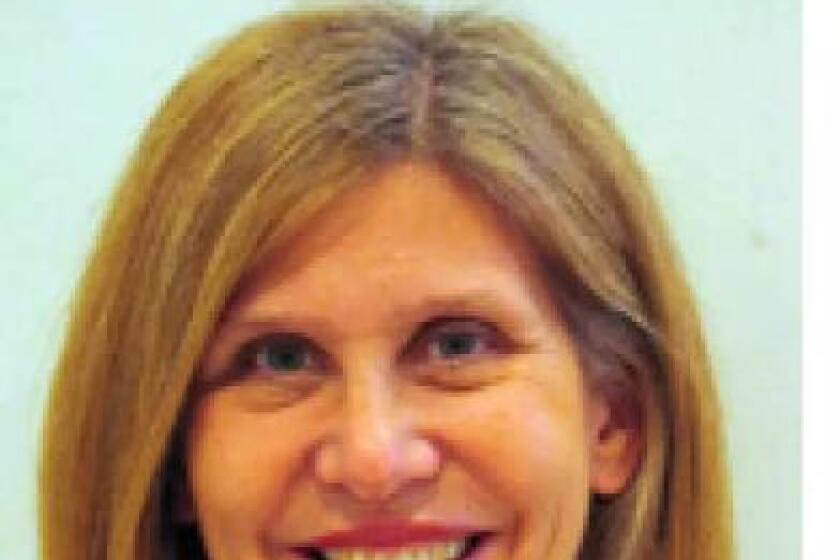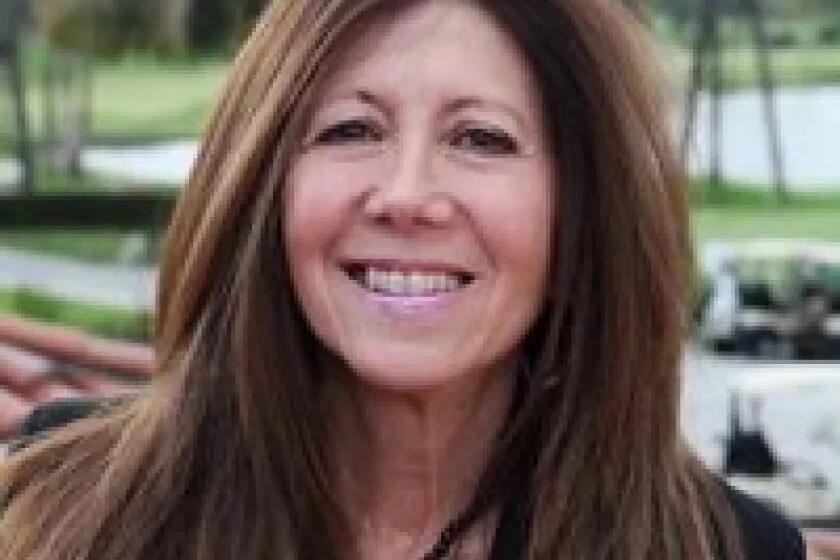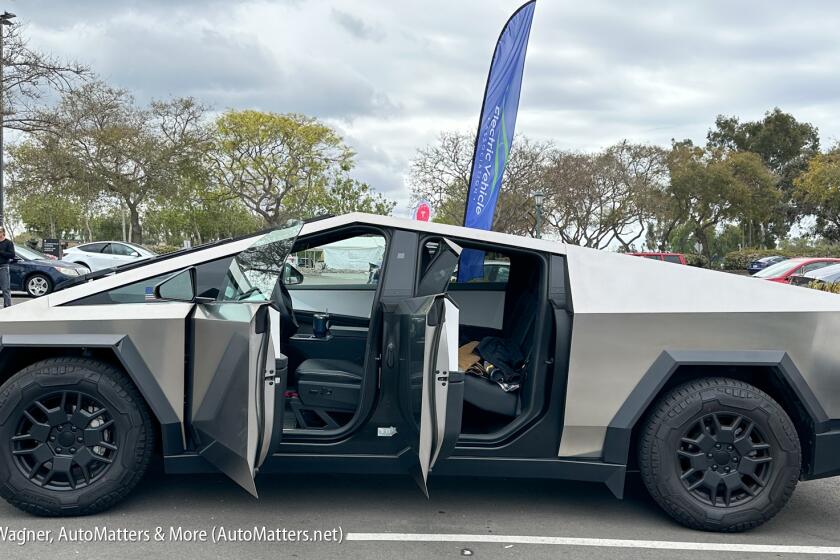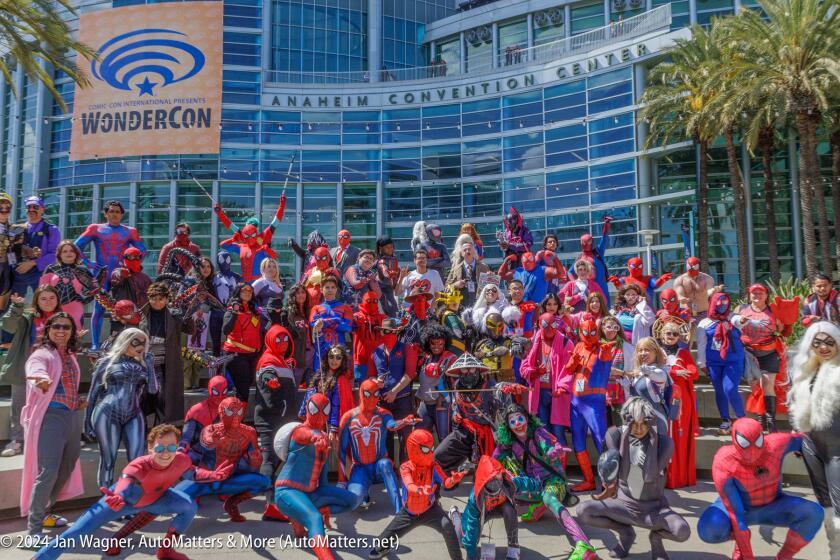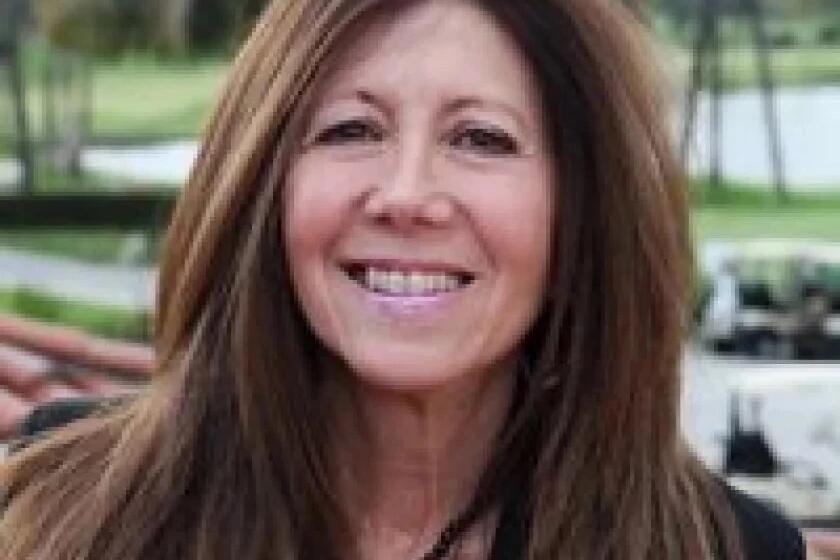Education Matters: Education gets a little SOUL
There’s a new kid on the block in the San Dieguito Union High School District.
Coming to a location near you this fall, the School of Universal Learning – SOUL – is the first approved charter school in San Dieguito’s history.
After being denied authorization by the SDUHSD board last October, SOUL co-founders Marisa Bruyneel and Michael Grimes made good on their promise to seek authorization at the next level, the San Diego County Office of Education (SDCOE).
The approval was granted by SDCOE, at a special board meeting Jan. 19, for two years rather than the customary five. Nevertheless, Bruyneel and Grimes were ecstatic and confident they could show success quickly and return to SDCOE in two years for a five-year renewal.
“We know we have our work cut out for us,” Bruyneel said. “However, this has been our life’s mission and we’re certainly up for the challenge.”
“Two years is all that we need to prove our model,” Grimes said. “We get to start working on the exciting aspects of the school now.”
Grimes confirmed that they plan to open their doors this coming fall, somewhere within San Dieguito’s boundaries.
“We’re incredibly happy to now move into securing a facility, finalizing our staff, and signing up our students,” he said. “We finally get to move into the aspects of SOUL’s development that we are passionate about, and skilled at, so that is incredibly exciting.”
The composition of the SDCOE board was key.
With two charter school supporters (Paulette Donnellon and Mark Powell) and two considered to be less supportive (Alicia Munoz and Guadalupe Gonzalez), the November election race for SDCOE’s District 5 seat was critical for the charter school movement.
District 5 encompasses the coastal communities from Del Mar north and inland to Fallbrook.
The District 5 election pitted former state senator Mark Wyland, a charter school supporter, against Rick Shea, who was appointed to the board in 2015 to replace Doug Perkins who suffered a debilitating stroke just after being elected to the SDCOE board in 2014.
Perkins, who died in 2016, was a strong advocate of charter schools and ran against Shea in Nov. 2014.
In the 2016 race, Shea was endorsed by teachers’ unions, so the election became characterized as a charter vs. union contest.
Shea won, barely. But as they say, a miss is as good as a mile – so “barely” hardly matters.
At the Jan. 19 meeting, SDCOE rejected the appeal of a charter petition in the Grossmont district by a vote of 3-2 along union/charter lines. So the next item to be considered, the SOUL petition, did not look promising.
For the same nebulous reasons as applied to Grossmont, SDCOE staff recommended a denial of SOUL’s appeal.
And as expected, the board voted 3-2 to deny SOUL’s petition which requested a five-year authorization.
But then, SDCOE board president Shea asked if anyone would offer another motion. Donnellon motioned and Powell seconded to authorize a two-year approval.
“What makes a school are not the computers and it’s not the building,” Powell said. “It’s the teachers, and it’s the commitment to education” – which he said in the case of SOUL’s founders “is 100 percent undeniable.”
Apparently SDCOE board members were convinced, because with little discussion they unanimously approved the charter for two years, eliciting screams of joy and applause from the audience.
Pattern of denial
Before the board voted, seven individuals spoke, six in favor of charter approval and one – Eric Dill, San Dieguito’s newly appointed superintendent – against.
Michelle Anderson, the Southern California Regional Manager for Advocacy for the Calif. Charter Schools Association, said CCSA is “concerned about a pattern of recommendations for denial that we are seeing from [SDCOE] staff.”
Regarding the findings, Anderson said, “We respectfully disagree on staff’s assessment and further submit that staff has not provided a fair and reasonable standard in their review.”
She told the board that CCSA’s reviews are rigorous, and petitions are examined thoroughly. “It is because of this level of scrutiny that we are comfortable with our strong support for the SOUL Charter School appeal today,” she said.
SOUL’s Grimes said the school has clear solutions and answers to every item of concern staff presented.
Dill supported the denial of the charter, saying San Dieguito did a thorough analysis and reached the same concerning conclusions as SDCOE staff.
CCSA’s Southern California Managing Regional Director Miles Durfee, responding in a lengthy letter to each written SDCOE objection, began by saying that CCSA has “great disappointment” in staff’s conclusions.
“We do not come to our support for or recommendation to you lightly,” Durfee wrote. “Our CCSA review team provides significant feedback for over 50 petitions annually and is very aware of what the law requires to provide a legally compliant petition.”
Because of SDCOE’s pattern of denials, “It is now our concern,” Durfee wrote, “that no charter petition written and submitted to the San Diego County Office of Education will meet staff’s perception of the requirements in law and be provided a fair and reasonable staff review.”
He urged the board to take a fresh look at the negative findings and reconsider their validity based upon clarifications in the CCSA letter.
“CCSA believes that the staff findings for SOUL Charter School either are inaccurate or do not rise to the level of findings for denial,” Durfee said.
Innovation in education
After speakers concluded, Donnellon noted that CCSA does not always recommend approval of charters, “and that says a lot.”
To the SOUL founders, she said, “I think what you’re doing with SOUL is amazing.”
For Powell, the overriding question he repeatedly asked fellow board members was, “Why not give them a chance?”
Powell criticized what he called “overwhelming government codes” that make it difficult for charter schools, which are independent public schools, to form.
He said charters work when we “let the parents decide.” If the school is not good, parents will take their kids out.
“Give them two years and make them come back,” Powell said. “Give them a chance.”
Apparently he had a premonition that the five-year petition would be denied, although it didn’t take a crystal ball to see that one coming.
After the rejection of the five-year petition, and then the approval of a two-year authorization, CCSA’s Anderson, in a statement, said, “We think it’s great that SDCOE is willing to work with SOUL and believe it is in the best interest of kids in San Diego County.”
SOUL’s Bruyneel praised board members Donnellon and Powell.
“They both made well-informed, cogent, and thought-provoking comments in reference to charter schools and the prospect of SOUL,” she said. “Both board members spoke to the need for school choice, stating that a one-size-fits-all education does not work.
“They spoke of the importance of innovation in education and that there are so many students that need a school like SOUL. Overall, they were forthright in honoring our program and what we will do for students.”
CCSA’s Durfee said, “I am proud that the board could look at the facts being provided them in addition to the staff’s information and make a good decision to support an innovative program that has passionate, caring leaders who are committed and could persevere through the very difficult charter petition process.”
Durfee said this marks the first school to be approved by SDCOE on appeal since 2003.
SDCOE board president Rick Shea, commenting on the approval for SOUL for two years after denying the charter five years, said in an email, “The law allows us to grant either a 2-, 3-, or 5-year approval. What I look for is a program that is innovative, is good for children, and complies with state law.
“In compliance with state law, the threshold is quite high because the applicant, who many times has never started a school, is requesting taxpayer money.
“I had enough concerns for reasons stipulated in the staff report to not grant a full 5-year approval. The 2-year period allows the applicants sufficient time and motivation to have their program in operation and be able to show us they are successful in meeting criteria for an extension.”
Upbeat
The problem with a two-year authorization is that the school will essentially have only one full school year (Sept. of 2017 through June 2018) plus a few months in the fall of 2018, before they need to return to SDCOE for renewal. So they don’t really get a full two years.
This places the authorizing board and staff in a difficult position, Durfee said, because they don’t have sufficient evidence to approve or not.
He noted that the law requires that renewal must be for a full five years and nothing shorter.
Durfee provided relevant Education Code on how to measure charter success: “The authority that granted the charter shall consider increases in pupil academic achievement for all groups of pupils served by the charter school as the most important factor in determining whether to grant a charter renewal.”
“We would have liked to have seen a five-year petition approval because we believe that a school needs more than a year to demonstrate pupil outcomes and growth in their program,” he said.
However, he said he does not remember a board vote against the renewal of a charter that had been initially approved for less than five years.
Demonstrating improvement in student achievement after only one year is challenging. Nevertheless, SOUL founders are upbeat.
“We’re looking forward to bringing a revolutionary model of education to San Diego and being the first charter school in the San Dieguito district,” Bruyneel said in an email.
“Students deserve to have the option to attend a smaller school, and one that is dedicated to developing them mentally, emotionally, socially, physically, and personally,” she said. “SOUL intends to change the educational paradigm and ensure that students graduate high school with the tools and skills needed to thrive.
“The unanimous yes to approve our charter for two years is not only a testament to the strength of our program but I think it also speaks volumes to the changes that we’re going to see in education as a whole.”
SOUL mission
At the regular San Dieguito board meeting Jan. 19, the same day after the SOUL approval, Dill informed the SDUHSD board of the SDCOE vote.
Dill stands by his initial concerns, which he said included inadequate start-up cost estimates, under-developed plans, no track record, fuzzy curriculum standards and enrollment issues.
Nevertheless, he congratulated Grimes and wished him luck, saying, “I hope they’ll be successful.”
Although the SOUL facility will be located within the boundaries of the San Dieguito district, SDCOE, not SDUHSD, will have oversight of the charter.
The mission of SOUL, according to the petition, is to “provide exceptional education that awakens individuals to know who they are, discover their passions and purpose, and thrive holistically, to achieve both mental and life mastery.”
[SOUL petition -- https://www.sduhsd.net/
documents/Superintendent/
Homepage%20-%20Public%
20Notices/SOUL%20Charter%
20School%20Petition.pdf]
Grimes said the school would open this fall with 100 students in seventh grade and 100 students in ninth grade.
“We will then grow vertically to have 100 in seventh, eighth, ninth and 10th in Year Two,” he said. “We will be full with 100 students in [grades] 7-12 in Year Four for a total of 600 students.”
Supporters of education reform wish SOUL founders and backers the best of luck and hope they prove skeptics wrong.
Sr. Education Writer Marsha Sutton can be reached at suttonmarsha@gmail.com.
Get the Del Mar Times in your inbox
Top stories from Carmel Valley, Del Mar and Solana Beach every Friday for free.
You may occasionally receive promotional content from the Del Mar Times.

